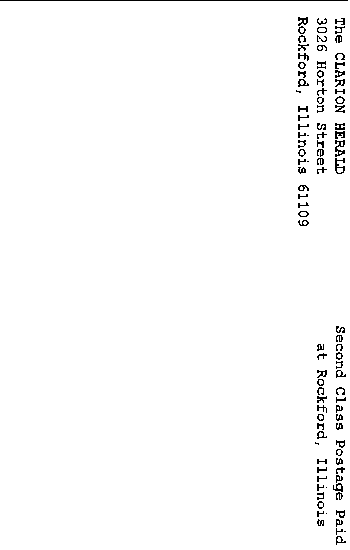
|
 |
 |
 |
|
 
|
|
|
GOD'S PURPOSE IN ISRAEL
Jehovah, the covenant-God of Israel, clearly set forth His purpose in the people He had called unto holiness and a place of special nearness unto Himself. They would be His ministers -- bearers of light to a sin-darkened world, (Psalm 67). It was the desire of His heart that, through them, all the ends of the earth might be brought to bow in worship and loving adoration before Him, (Psa. 81:8-16; Isa. 52:19; 45:22; Psalm 98:1-3). Israel was "the vineyard of the Lord of hosts...the men of Judah his pleasant plant", (Isaiah 5:7).
From the very formation of the covenant nation, at Mt. Sinai, God held before His people the prospect of a glorious future if they would OBEY His voice INDEED, (Deut. 28:1-14). He would be their God and King. It was NOT His purpose to give them a king like the nations around them. They should be a Theocracy -- ruled by God, (Deut. 29:12-13; Judg. 8:22-23). They were promised a special relationship of covenant fellowship with God, (Ex. 6:6-8; 29:45; Lev. 26:12). They would be uniquely blessed, (Ex. l9:5-6); and God would make them a blessing to others. He has always cared for THE WHOLE of mankind.
|
|
|
|
ISRAEL'S UNFAITHFULNESS
God's stedfast love for Israel is manifested again and again in His faithful dealings throughout Old Testament history. But their hearts were not ruled by such a reciprocation of love -- as would have manifested itself in loyal care and the joyful acceptance of responsibility.
With their lips the people of Israel were ever ready to pledge their allegiance and obedience to the Lord, (Ex. 19:7-9, 16-19; 20:18-20; 24:7). But, in reality, they miserably failed the Lord at every turn, (I Sam. 8:7; 10:19; Psa. 78:10-11).
The infidelity of unbelief was ever the root-cause of their failure. They failed in the wilderness through the disobedience of unbelief -- saying, "We be NOT ABLE to go up against the people; for they are stronger than we!" (Num. 13:31) Of course they were not able -- of themselves!! But, in the strength of the Lord, they could not have fai1ed! Only, they would not trust the Lord. Ca1eb and Joshua alone were willing to follow Moses into the land of promise. The rest were ready to choose a captain who would lead them back to the rigorous bondage of Egypt!! So, God permitted
|
|
|
|
|
Page - 2
that generation to wander and die in the wilderness.
After Joshua had led the younger generation into the land of promise they failed God again -- through the same sort of disobedient unbelief. They did not drive out the enemy as the Lord had commanded, (Judg. 1:27-36). And, intermarrying with the heathen, they soon bowed before their idols, (Judg. 3:1-7).
WHAT CAUSED ISRAEL'S FAILURE?
In Jeremiah 7:23-31 God summarizes His case against the covenant nation. They had brought ruin upon themselves through a persistent refusal to trust in God. At least six things contributed to their ultimate downfall.
1. THEY DID NOT BELIEVE GOD, (Heb. 3:9-4:13 Psa. 78:19-22; 106:7, 24; Isa. 7:9; 53:1-3).
2. THEY WERE A SELF-RIGHTEOUS PEOPLE, (Deut. 9:4-6; Isa. 65:3-5;
|
|
|
|
Prov. 12:15; 20:6; 30:12; Jer. 2:35).
3. THEY WERE NOT WILLING TO SHARE THEIR BLESSINGS, (Ezek. 34:18; Mal. 1:10; I Jn. 3:17; Lk. 10:30-37).
4. THEY WERE SELF-EXALTING and SELF-CENTERED, (Prov. 25:67, 27; Matt. 23:12; Lk. 18:11; 2 Tim. 3:2).
5. THEY WERE STUBBORN and SELF-WILLED, (Exodus 32:9; Deut. 9:13; I Sam. 8:19; Jer. 44:16-17; Zech. 7:11-12; Acts 7:51). This was a sin against the Spirit, (Isa. 63:10; Acts 5:3; Eph. 4:30; Heb. 10:26-31).
6. AND, THEY WERE BLINDED BY PRESUMPTION, (Num. l5:30-31; Deut. 29:19-20; Isa. 29:15-16; 45:9-10; Mal. 1:6-7, 12; 3:7-8, 13; John 8:33, 41).
Time after time God faithfully called the rebellious nation to repentance, submission and obedience -- to a remembrance of their covenant-vows, and the love that they had forsaken. All the age-day long He stretched out a beckoning hand to a disobedient and gainsaying nation, (Rom. 10:20-21). In desolation, they have, for 2,000 years, been eating "of the fruit of their own way" -- filled with their own devices, (Prov. 1:24-33). But the faithful, waiting husband loves them still. He will ultimately receive them back into fellowship -- but ONLY AFTER they have learned the utter emptiness of their devices and their eternal bankruptcy apart from His divine grace.
Such disobedience as characterized the unbelief of the covenant nation will always lead to failure in one's walk before God. Let us "take a lesson"!
|
|
|
|
|
FORMLESS, EMPTY AND NORMAL
by Michael B. Rogers
(NOTE: this is the continuation of a series of articles that Bro. Mike started several months ago and was forced to interrupt because of pressing pastoral duties. -- the Ed.)
Since the original acceptance of the gap theory as "explanation" for Cuvier's geologic ages, many advocates have searched hopefully for corroboration from other Biblical evidences. One such contention is that the words "without form and void" (Gen. 1:2) describe the evil conditions brought about by a pre-Adamic cataclysm. To emphasize this theory, it is argued that the Hebrew words ought to be translated "a desolation and a waste" or "chaotic and uninhabited". This writer prefers the rendering "formless and empty", while recognizing all three as possible translations in a given context.
The Hebrew phrase under consideration is tohu wa-bohu. A quick check in Young's Concordance will reveal the basic idea of both words is that of "vacancy" or "lacking". BOHU is used only 3 times, always with TOHU (Gen. 1:2; Isa. 34:11; Jer. 4:23). TOHU is used an additional 10 times. Do the words necessarily connote "evil" or its result? Certainly not!!
The following, is a list of the senses in which these words are used -- tohu being used more often.
1) To describe an unfinished state, (Gen. 1:2).
2) To describe natural or physical appearance: "waste" (Deut. 32:10); "nothing" (Job 6:18);
|
|
|
|
Page - 3
"wilderness" (Job 12:24; Psa. 107:40); and "empty place" (Job 26:7).
3) To describe reversal from complexity to disarray: "confusion" (Isa. 24:10; 34:11); "waste" (Isa. 49:19); "without form and void" (Jer. 4:23).
4) To describe futility or insignificance: "vain" (twice, I Sam. 12:21); "naught" (Isa. 29:21, 49:4) "vanity" (Isa. 40:17, 23; 44:9, 59:4); "confusion" (Isa. 41:29).
The crucial proof-text for those who see in "tohu" an inherent sense of evil is Isaiah 45:10. Notice however, that TOHU (vain) was not the GOAL or PURPOSE of the earth -- though it did have an intermediate and temporary tohu-state. And more specifically, His purpose for Israel -- though for the present INCOMPLETE -- is not ultimately in vain. He intended for the earth to be inhabited and for Israel to serve a central role. This is clearly demonstrated in this verse and the next where TOHU (vain) is used again.
In Job 26:7 SPACE, and in Psalm 107:40 WILDERNESS are said to be TOHU. In what sense are these evil or the result of judgment? Are we to understand that the moon and planets were once thriving with life and Edenic qualities because the astronauts and Mariner and Pioneer space probes find them presently to be "desolate and lonely"?
Certainly to a human from the 20th Century, accustomed to green fields, animals and houses, the earth, on its first day, would have appeared bare, foreboding and drenched. In reality it was "very good" for that stage of creation.
|
|
|
|
|
In Genesis 1:2, "tohu wa-bohu" actually points out two directions in which the earth would further undergo change: 1) Continents, sea, rivers, plants, a garden would become form-giving features; 2) Animals and man would dispel its empty uninhabitedness.
CORINTH FELLOWSHIP
As we go to press this week it appears impossible for this editor and family to share the time of fellowship with the Corinth MDC of Dry Prong, Louisianna. Our hearts would be blessed by sharing that time of fellowship. But the priority of pastoral care requires our presence with the home church at this time. E.G.
|
|
|
|
LOVE DIVINE
To fathom the measure of divine love is humanly impossible. The circumference of the earth, the altitude of the sun, the distance to the planets -- these have been determined with remarkable accuracy; but to measure the height, depth, length and breadth of divine love surpasses our ability. It is written of our Lord that "having loved his own ... He loved them unto the UTTERMOST", (John 13:1).
The unprovoked, unmerited love of God for perishing sinners is the central truth of the Holy Scriptures. The Word does not anywhere suggest that God loves us because Christ (the Son of His love) has died in our stead. Rather, it declares that Jesus died for us because the Father ALREADY LOVED US! "For God so loved the world, that he gave his only begotten son, that whosoever believeth in him should not perish, but have everlasting life", (John 3:16).
Jesus Christ came into this world as the gift of divine love -- as an expression of the Father's deep yearning for the reconciliation of the creature made in His own image. God commended such love toward us, in that, while we were yet in the terrible bondage of sin -- in rebellion against His holy and loving purpose -- Christ died for us, (Rom. 5:8).
"Oh, the love that drew salva-
tion's plan!
Oh, the grace that bro't it
down to man!
Oh, the mighty gulf that God did
span AT CALVARY!"
|
|
|
|
|
 |
 |
 |
|




